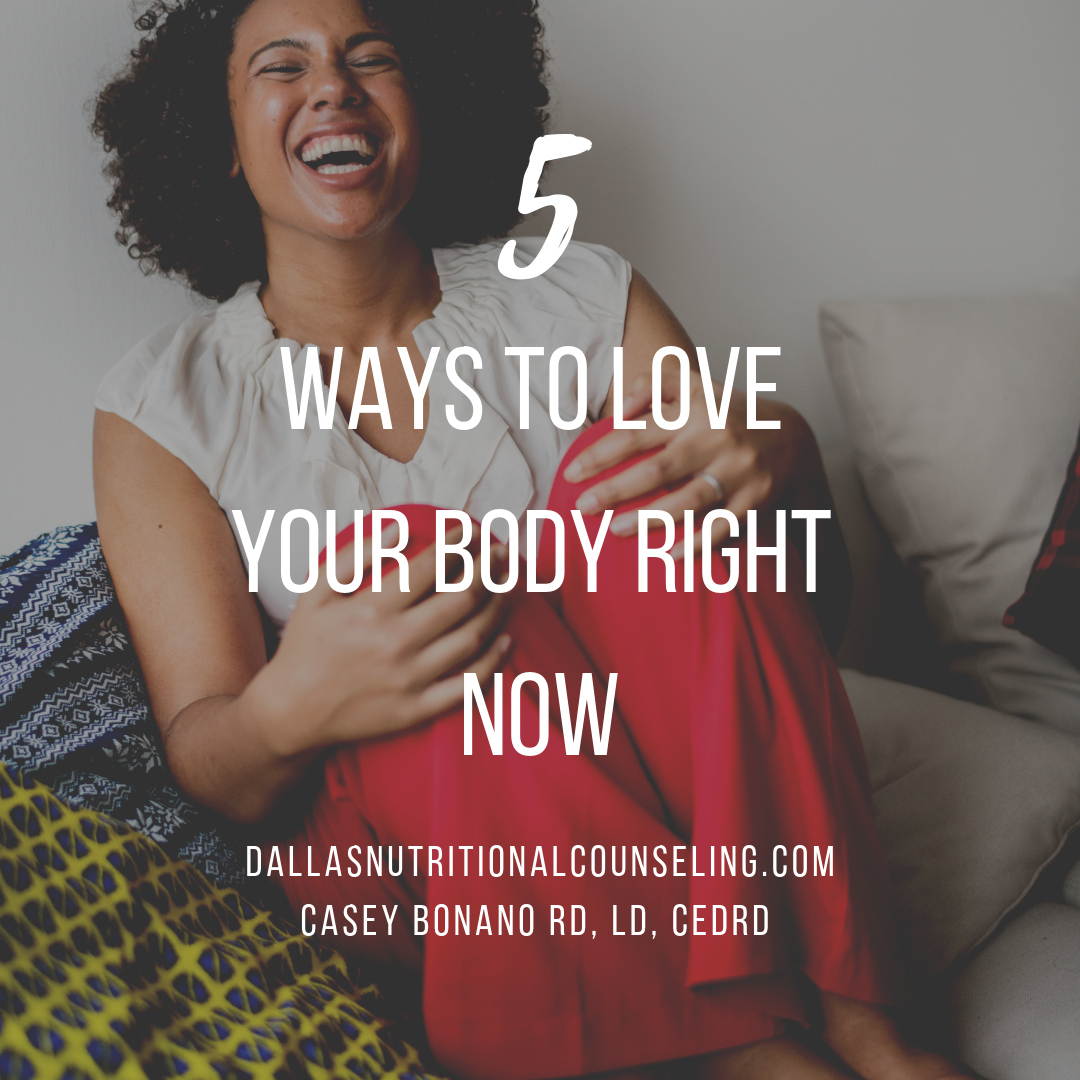Are you a Normal Eater?
Normal is such an ambiguous word that I often try to avoid using with my patients. I strive to provide each of my patients with a broad definition that can be individualized for each person. This is key because we all have food preferences and different cultural components that play into what we eat on a daily basis.
So What Is Consider Disordered Eating?
Disordered eating is expansive and I could probably come up with 1,000 different bullet points, so I will save you and just hit the high notes.
- Viewing food as good or bad, healthy or unhealthy
- Thinking about food other than around meal time
- Chronic dieting or "watching your weight"
- Skipping meals
- Feelings of guilt for not exercising
- Restricting whole food groups or certain types of food
- Frequent worry or fear of weight gain
- Rewarding or punishing yourself with food
- Feeling guilty after consumption of certain foods
- Abiding by food rules
- Making food choices based only on health and not preference
- Using food for comfort
- Frequent conversations focused on food, weight, and/or body
- Frequent worry or fear of health consequences
According to a recent study, over 1/2 the females between the ages of 18-25 would prefer to be run over by a truck then be fat, and 2/3 surveyed would rather be mean or stupid.
The diet and diet related industry is a 50 billion dollar a year enterprise and the most common behavior that will lead to an eating disorder is dieting.
So What Is Considered Normal Eating?
It is hard to find a normal eater, or at least by my definition of a normal eater. There are several socially acceptable forms of disordered eating - healthy vs unhealthy, compensating for what you eat with exercise, etc. I bet its hard to even think of someone in your life that is a normal eater. The following are some components to normal eating...
- Thoughts about food only occupy a small amount of your time
- All foods can fit, no foods are considered bad or unhealthy with moderation
- There is no guilt associated with food selections or exercise
- Exercise allows you to feel connected to your body
- Trusting your body to tell you what and how much to eat
- Recognition that all bodies are beautiful
- Society does not influence your feelings towards your body or other body types
- Consumption includes a variety of foods
- Hunger is honored through out the day despite the time of day or how much previously eaten
- A person's weight or body does not determine their worth or value
91% of women surveyed on a college campus had attempted to control their weight through dieting. 22% dieted "often" or "always.
A study conducted by Cornell University found that 40% of male football players surveyed engaged in some sort of disordered eating behavior.
If you are interested in freeing yourself from disordered eating and becoming a normal eater please visit my contact page or email me directly at caseyvoorhies@gmail.com. #dallasnutritionalcounseling










Dallas Nutritional Counseling is currently seeking a body positive personal trainer to join our expanding practice.